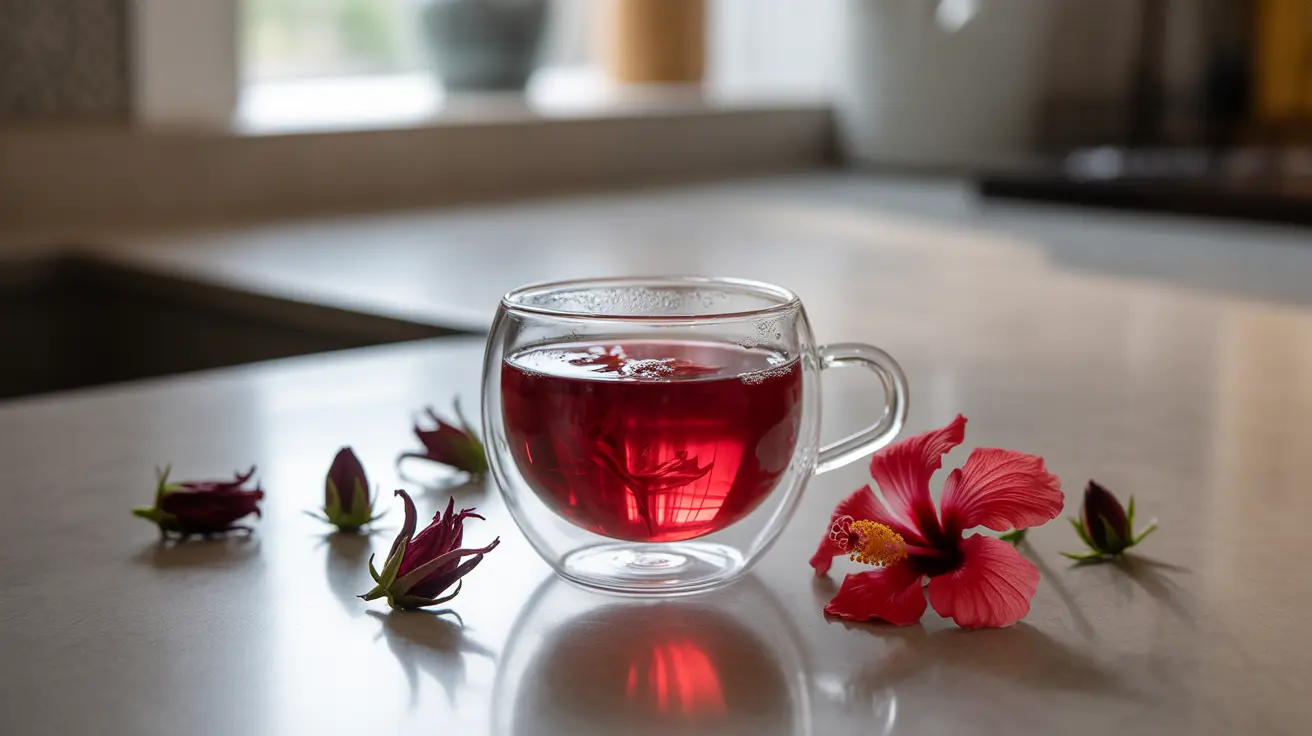Hibiscus tea, derived from the vibrant Hibiscus sabdariffa flower, has gained significant attention in the health and wellness community for its impressive array of potential health benefits. This tart, ruby-red beverage has been used in traditional medicine practices for centuries and is now backed by modern scientific research supporting its positive effects on cardiovascular health, weight management, and overall wellbeing.
From its powerful antioxidant properties to its potential role in blood pressure management, hibiscus tea offers a natural approach to supporting various aspects of health. Let's explore the scientific evidence behind this remarkable herbal tea and understand how it might benefit your health journey.
The Science Behind Hibiscus Tea's Health Benefits
Hibiscus tea contains a rich profile of bioactive compounds, including anthocyanins, polyphenols, and organic acids. These natural compounds work together to provide numerous health benefits, particularly in supporting cardiovascular health and metabolic function.
The tea's high antioxidant content helps combat oxidative stress and inflammation in the body, while its unique combination of compounds may help regulate various biological processes related to heart health and metabolism.
Antioxidant Properties and Their Impact
The antioxidants found in hibiscus tea, particularly flavonoids and anthocyanins, play a crucial role in protecting cells from damage caused by free radicals. These compounds help reduce oxidative stress, which is linked to various chronic diseases and aging processes.
Blood Pressure Management and Heart Health
One of the most well-documented benefits of hibiscus tea is its potential to support healthy blood pressure levels. Research suggests that regular consumption may help maintain optimal blood pressure through various mechanisms, including its effect on blood vessel function and fluid balance.
Studies have shown that hibiscus tea may work similarly to some blood pressure medications, though it's important to note that it should not replace prescribed medications without medical consultation.
Weight Management and Metabolic Health
Hibiscus tea may support weight management efforts through multiple mechanisms. It has been shown to influence fat metabolism and help regulate blood sugar levels, which can be beneficial for those working to maintain a healthy weight.
The tea's natural compounds may also help reduce the absorption of dietary carbohydrates and fats, potentially contributing to its weight management benefits.
Safety Considerations and Proper Usage
While hibiscus tea is generally safe for most people, certain individuals should exercise caution. Those taking blood pressure medications should consult their healthcare provider before incorporating hibiscus tea into their routine, as it may interact with these medications.
For optimal benefits, it's recommended to consume 2-3 cups of hibiscus tea daily, preferably between meals. The tea can be enjoyed hot or cold and should be prepared using proper brewing techniques to maximize its beneficial compounds.
Frequently Asked Questions
What are the health benefits of drinking hibiscus tea? Hibiscus tea offers numerous health benefits, including potential blood pressure reduction, antioxidant protection, support for weight management, and blood sugar regulation. Its rich array of bioactive compounds contributes to its overall health-promoting properties.
How does hibiscus tea help lower blood pressure and support heart health? Hibiscus tea contains compounds that may help relax blood vessels and act as a mild diuretic, potentially contributing to lower blood pressure. Its antioxidant properties also support overall cardiovascular health by protecting blood vessels from oxidative damage.
Can hibiscus tea aid in weight loss and blood sugar management? Yes, research suggests that hibiscus tea may support weight management by influencing fat metabolism and helping regulate blood sugar levels. It may also help reduce the absorption of dietary carbohydrates and fats.
Is hibiscus tea safe for people taking medication for high blood pressure? People taking blood pressure medications should consult their healthcare provider before consuming hibiscus tea regularly, as it may interact with these medications and potentially affect blood pressure levels.
What antioxidants are found in hibiscus and how do they contribute to overall health? Hibiscus tea contains anthocyanins, flavonoids, and other polyphenols that act as powerful antioxidants. These compounds help protect cells from oxidative damage, reduce inflammation, and support overall health by combating free radicals in the body.




